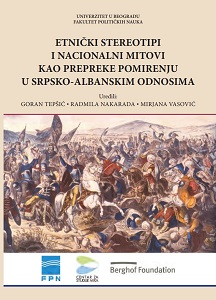
We kindly inform you that, as long as the subject affiliation of our 300.000+ articles is in progress, you might get unsufficient or no results on your third level or second level search. In this case, please broaden your search criteria.

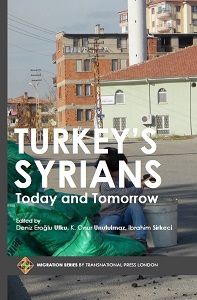
After 6 years, Syrian diaspora in Turkey and Europe has been capturing headlines. This edited volume offers insights and evidence to develop sound and responsible policies regarding this particular immigrant group and others.
More...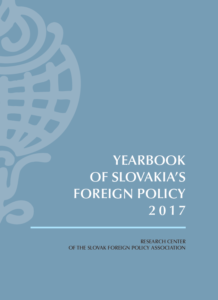
The question in the heading may seem rather speculative, since an answer in the positive may appear simple and straightforward after the experience of recent years. Someone might argue that the unambiguousness of such a reply is simply wishful thinking that is out of touch with reality. However, a negative answer also does not take into account all the possibilities and elements of reality in Europe and the Western Balkans. The enlargement of the European Union to the southeast of our continent is simply a longterm process, the progression of which is connected with many obstacles, twists and turns affecting its rhythm and pace.
More...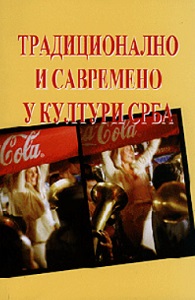
The subject-matter of this research work is the Serbian citizenry in Banjaluka at the end o f the 19th and at the beginning of the 20th cc., or, more exactly, the Serbs who were town inhabitants during the Austro-Hungarian rule of Bosnia-Hercegovina (1878-1918). The goal of the research work is to acquire an all-embracing insight into the existence and culture of the Serbs in Banjaluka and thereby supplement ethnologic understanding of the Serbian civil society of the late 19th and early 20th centuries, the time of transition processes. The research focus is threefold: 1) The origin of families, the migratory movements, 2) The social structure of the Serb national community in Banjaluka, 3) The cultural structure in pursuance of two models: patriarchal and central-European. The research work has draw n on written sources (registers of births, marriages and deaths, land-property registers, legacies of individual families), verbal sources (evidence of Banjaluka Serbs), relevant literature, press, works of fiction, visual sources (photographs, portrait paintings).
More...
Srbija se mora i u tom smotreniju u red ostalih evropejskih država postaviti, stvorivši jedan plan za svoju budućnost, ili tako reći da sastavi sebi jednu domaću politiku po kojim glavnim načelima treba Srbija kroz više vremena stalno da se vlada i sve svoje poslove po njima postojano da upravlja. Dviženije i talasanje među Slavenima počelo je već i zaista nikad prestati neće. Srbija mora ovo dviženije a i rolu ili zadatak, koji će ona u tom dviženiju za izvršenje imati, vrlo dobro upoznati. Ako Srbija dobro projesapi šta je ona sad? u kakvom se položaju nalazi? i kakvi nju narodi okružavaju? to se ona mora uveriti o tome, da je ona mala, da u ovom stanju ostati ne sme, i da ona samo u sojuzu sa ostalim okružavajućim je narodima za postići svoju budućnost svoj zadatak imati mora. Iz ovoga poznanja proističe čerta i temelj srpske politike, da se ona ne ograničava na sadašnje njene granice, no da teži sebi priljubiti sve narode srbske koji ju okružavaju. Ako Srbija ovu politiku krjepko ne bude sledovala, i što je gore, ako je odbaci te ne sočini ovom zadatku dobro raščišljen plan, to će ona od inostranih bura kao mala lađa ovamo i onamo bacana biti, dok najposle na kakav golem kamen ne nameri, na kome će se sva razdrobiti.
More...
Načertanije je ne samo temeljni i najdalekosežniji plod srpske državotvorne misli novog doba već i valjan orijentir u našoj savremenosti te pred horizontima budućnosti. Izložena vrlina Načertanija nije samo plod njegovog tvorca (ili tvoraca) već i postojećeg stanja u kome senalazi srpski narod: posao stvaranja srpske države još nije okončan. Valja istaći da i mnoge boljke srpske političke misli i srpske (pseudo) elite, koje je uočavao Garašanin – nisu prevladane i danas čak poprimaju gore oblike.
More...
Savremena post-hrišćanska civilizacija globalnog Zapada je, u ime svoje mundijalističke ideje, povela "novi križarski" rat protiv Srbskog pravoslavnog naroda i Srbske pravoslavne ideje. Budući da je Pravoslavlje temeljni elemenat Srbske ideje i, time žila kucavica čitave srbske istorije, rat koji je civilizacija belog pentagrama vodila i vodi protiv pravoslavnih Srba kao čuvara i branilaca Časnoga Krsta i Zlatne Slobode, ispostavlja se kao rat protiv samog Pravoslavlja, kao rat protiv pravoslavnog duhovnog i geopolitičkog sveta, ili drugačije – kao integralni zapadni rat protiv hrištanske istorije. Tako se u srbskom otadžbinskom ratu u Zapadnim Srbskim Zemljama zbivao i zbiva odsudni mistički sukob suprotnih ideja istorije: hrišćanske i anti-hrišćanske (=antihristovske). Na geopolitičkim prostorima balkanske proto-Evrope se ponovo vodila (i još nije završena!) odlučujuća mistička bitka hrišćanskog otpora Zapadnom Zlu koje objavljuje Kraj Istorije, bitka za duhovnu sudbinu hrišćanske evroazijske civilizacije, bitka čijeg značaja duhovno-politički posunovraćena Evropa uopšte nije bila svesna, a, nažalost, ni Rusija, koja – izgubivši svest o svojoj istorijskoj misiji i svom geopolitičkom identitetu – više ne ume da artikuliše svoju balkansku politiku u skladu sa pravoslavnim evroazijski ciljevima.
More...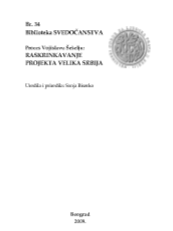
Još na početku poslednje decenije prošlog veka u Srbiji je, kao i u ostalim zemljama tzv. tranzicije, pod vođstvom Slobodana Miloševića, izvršena institucionalna reforma kojoj se ne može poreći da je, bez obzira na brojne manjkavosti, stvorila osnovne ustavne pretpostavke za uspostavljanje modernog demokratskog poretka. Uvedeno je načelo podele vlasti, višepartijski sistem, neposredni izbori, uspostavljen parlament i liberalizovani mediji; čak je i ministar vojske po prvi put u istoriji Srbije imenovan iz redova građanskih lica. Danas, deceniju i po kasnije, svedoci smo potpunog debakla ovih institucija. Umesto da utru put uspostavljanju pluralističke demokratije, tržišne ekonomije i vladavine prava, moderne političke institucije poslužile su kao mimikrija za pokrivanje, odnosno svojevrsno legitimisanje jednog totalno arhaičnog, antimodernog političkog projekta koji je uz to još bio i zločinački. Pitanje državnih granica i etnička homogenizacija definisani su kao primarni interes srpskog naroda, pred kojim sloboda pojedinca kao vrednost ili nestaje ili u najboljem slučaju ima tek drugorazredni značaj. U punom svetlu se pokazala jedna patrijarhalno - autoritarna, izrazito monisitička politička kultura, čije jedno, unutrašnje lice predstavlja kolektivizam, egalitarizam, netrpeljivost prema drugom i drukčijem, a drugo, spoljašnje lice, etnički nacionalizam i ratništvo.
More...
Idućeg utorka, 24. februara, navršiće se tačno šest godina kako se predsednik Srpske radikalne stranke Vojislav Šešelj dobrovoljno predao Haškom tribunalu, pred kojim je optužen za zločine protiv čovečnosti i kršenje zakona i običaja rata. Njegov slučaj nije jedinstven samo po dužini njegovog boravka iza rešetaka pre nego što je proces otpočeo: on je i jedini optuženi čije je suđenje zvanično počinjalo dva puta 7. novembra 2007, kada su mu sudije posle štrajka glađu priznale pravo da se brani sam. Ujedno je i jedini okrivljeni u Hagu kog uglavnom terete zbog podsticanja drugih na zločine, što je i razlog da njegovi simpatizeri tvrde kako se Šešelju u Hagu sudi zbog „verbalnog delikta”, to jest „govora mržnje”. (U optužnici se, naime, Šešelj tereti „da je svojim govorima, izjavama, radnjama i/ili propustima doprineo da se kod izvršilaca stvori odluka da počine krivična dela”.)
More...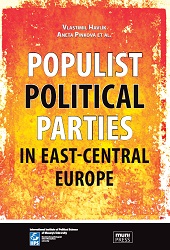
The Czech Republic’s experience with a relevant populist political party reaches back to the very beginning of the 1990s and the Association for the Republic – the Republican Party of Czechoslovakia (SPR-RSČ), a party led by Miroslav Sládek. The Republicans had Parliamentary representation in the years between 1992 and 1998. In addition to their extreme right-wing rhetoric featuring nationalism combined with xenophobia to the point of racism, a fundamental part of their identity was a populist appeal joined to a critique of the changes implemented after November of 1989 (which the Republicans labelled “the velvet rip-off ”).
More...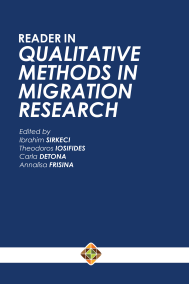
The aim of the paper is to present the potential contribution of using Critical Discursive Psychology to study national identity and immigration. It draws upon a study on Greek national identity negotiations in relation to immigration. The study was guided by the perspective of banal nationalism which treats national identity as a form of life in a world divided into nation states (Billig, 1995). In terms of Greek national identity and immigration, the study drew similarities between the perspective of banal nationalism and the critique of methodological nationalism (Wimmer and Schiller, 2002).
More...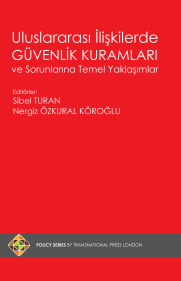
1980’li yılların ortalarından sonra Sovyetler Birliği’nin uyguladığı merkezi planlamanın ekonomiye sağladığı kazançlar olumsuz neticelere sebep olmuş, üretim kapasitesi ve kalitesi dünya standartlarının altında kalmış, sosyalist ekonomik yapı tıkanmaya başlamış ve bunun sonucu olarak Sovyetler Birliği’nin o dönemdeki yeni başkanı Mihail Gorbaçov 1985 yılında yeni ekonomik tedbirler almak zorunda kalmıştır. 1980’li yılların ikinci yarısından itibaren Gorbaçov’un iç politikada başlattığı Glasnost (açıklık) ve Perestroyka (yeniden yapılandırma) hareketleri dış politikada da birtakım değişiklikler meydana getirmiştir. Uluslararası arenada devletlerin birbirlerine olan bağımlılığı artarken bu duruma kayıtsız kalamayan Sovyetler Birliği, uluslararası sistemin gerçekliklerini göz önünde bulundurarak Batı (Avrupa Birliği) ile ilişkilerde hassasiyet göstermeye başlamıştır.
More...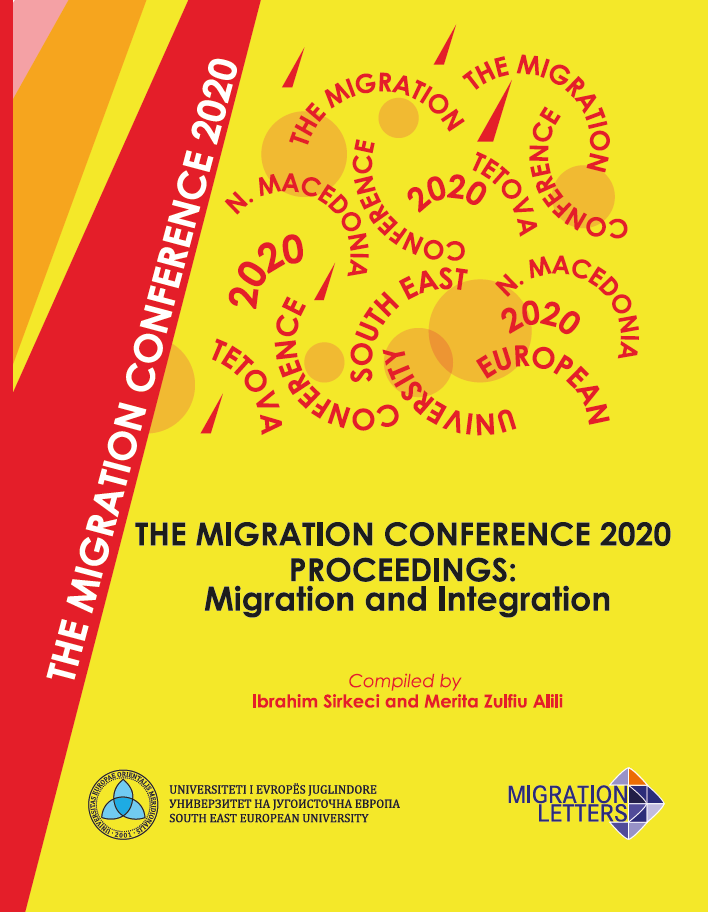
Social identity contributes to build the self-image, generated by the awareness of belonging to a social group, reinforced by the value and the emotional meaning that the individual attributes to his/her belongingness.We present the results of two studies to understand how belonging to a social group can influence the aesthetic evaluations of artworks.These studies suggest how artworks and associated places, such as museums and art galleries, can generate social identity dynamics that influence the way people evaluate and feel about specific works of art and art contexts.
More...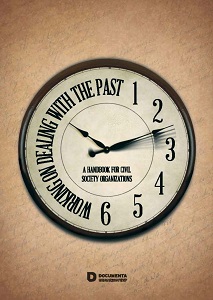
Well, it’s hard to remember precisely. I didn’t have some kind of...break down, nothing specially happened and I didn’t find myself suddenly standing in the light of activism sun. Somehow, I’ve been feeling my whole life that it is very important to participate in the life of a community, to follow some principles, to fight for some values... This attitude has, perhaps, been formed under the influence of books I’d read. Generally, I have always felt this drive inside. When I was very little, even before I started school, I already liked reading very much. And I read, back in the 1980s, partisan stories such as “Eagles fly early” by Branko Ćopić, and books like that. And I remember growing up with this war, with Germans and partisans. It was as if this war had happened yesterday! I was born in 1983 and already in 1987 or 1988 I was able to read, and all the books I read and movies I watched were about partisans and Germans, and these ‘rotten apples’, chetniks and ustashe. I remember talking to my Dad, who died in 1991, it was just before the war broke out. I remember vividly a conversation I had with him. This must be the way it is, when you lose a parent early as a child, you go back later to some things.. I asked him “Dad, who won this last war?” I meant the Second World War and of course I knew who had won, but this was just an introduction to my following question. These were some of my authentic reflections. He said: “Son, we won.” “Son”, you know, this is how they call daughters there where I come from (laughter). I said: “And what about when a daughter asks her father in Germany about who had won the war, what does he tell her?” I really wanted to know if all children were growing up like me, with this war in which We had won, or was it just a fairy-tale that our parents tell us all when we are little, something like Santa Clause (so not very authentic), did all children, in Japan, Germany, South African Republic, have this privilege to grow up with stories about partisans, about our fight and victory...
More...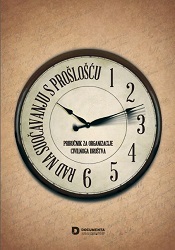
Pa teško mi je zapravo sjetiti se točno. Nije to bila nekakva... ruptura, ništa se nije specijalno dogodilo pa me obasjalo neko aktvističko sunce. Nekako cijeli život dijelom osjećam da je jako važno participirati u zajednici, prema nekim principima, boriti se za neke vrijednosti... Taj stav je možda nastao i pod utjecajem literature, možda i do... Općenito, ja oduvijek osjećam taj poriv u sebi. Ja sam kao jako mala, još prije nego što sam krenula u školu, voljela čitati. I čitala sam, to je bilo još u 80-im, partizanske priče, “Orlovi rano lete”, Branka Ćopiča i slično. I baš se sjećam da sam odrasla s tim ratom, Nijemcima i partizanima. Taj rat kao da je bio jučer! Evo, ja sam ‘83. godište, negdje ‘87. ili ‘88. već sam mogla čitati, i svi filmovi i knjige koje sam čitala, sve je bilo natopljeno pričama o partizanima i Nijemcima, i tim nekim trulim jabukama, ustašama, četnicima. Sjećam se jednog razgovora sa tatom, moj tata je umro ‘91., znači baš negdje pred rat, ali ja se baš živo sjećam jednog razgovora s njim, to tako valjda ide, kad kao mali izgubiš roditelja pa se onda nekim stvarima kasnije vračaš... Onako, ja sam pitala “A tata, ko’ je pobijedio u ovom zadnjem ratu?”. Mislila sam na Drugi svjetski rat i naravno znala sam ko je pobijedio ali to je bio uvod u daljnje pitanje koje je slijedilo. To su bila neka moja autentična razmišljanja. On je rekao: “Mi smo sine pobijedili.”. “Sine”, znaš kako kćeri zovu tamo odakle ja dolazim! (smijeh). Ja kažem: “A dobro, a što kad recimo u Njemačkoj kći pita svog oca tko je pobijedio u tom zadnjem ratu? Što joj on kaže?”. Strašno me zanimalo rastu li sva djeca kao ja, s tim nekim minulim ratom u kojem smo Mi pobijedili, je li to zapravo bajka koju nam svima roditelji pričaju dok smo mali, nešto kao Djed Mraz (pa stoga i ne sasvim vjerodostojna), je li povlastica djetinjstva sve djece, i u Japanu, Njemačkoj, Južnoafričkoj republici, da odrastaju s pričama o partizanima, o našoj borbi i pobjedi... Prvenstveno mislim da je suočavanje s prošlošću važno toliko koliko se suprotstavlja upravo toj dnevnoj politici, tim dnevnopolitčkim modama, kako se treba misliti i govoriti, nužno ideologiziranim, iza kojih uvijek stoje neki interesi, bez obzira na to o kojoj se vlasti radi. Mislim da je ova povijest na kojoj ja radim, usmena povijest, demokratičnija povijest, jer je to povijest ‘odozdo’. Mislim da kad se priče tako postave jedna pored druge, puno se jasnije 'vidi koliko su priče zapravo slične na raznim stranama. Ljudi na taj način mogu lakše prepoznati sličnosti koje imaju s onima koji se nalaze, ili su se nalazili ‘na suprotnoj strani’. Možda i više nego s nekim tko pripada ‘njihovoj strani’! I to bez obzira na nacionalne i nacionalističke elite koje ih zapravo cijelo 'vrijeme uvjeravaju da je neprijatelj onaj preko plota ili na puškometu. Voljela bih kad bi to prepoznavanje potaknulo izvjesnu horizontalnu solidarnost među prevarenim i opljačkanim narodima, a dezavuiralo nacionalističke narative koje su iz vlastitih interesa plasirali, i dalje plasiraju, jedini dobitnici ovih ratova, te več pomenute nacionalne elite.
More...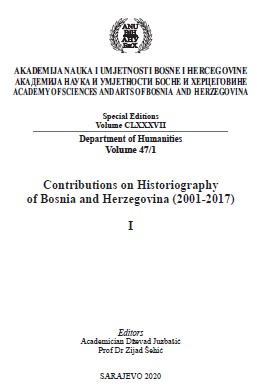
Auf den bisherigen Konferenzen in Sarajevo über das Thema Bosnien-Herzegowina in der Geschichtsschreibung wurden nicht nur zahlreiche case studies vorgelegt, sondern auch Bosnien-Herzegowina als eine historische Ganzheit behandelt. Die nationalen Narrative der Bosniaken, Kroaten und Serben schlugen dabei untereinander konträre Wege ein. Die bosniakischen Interpreten der bosnischen Geschichte sprechen gerne von der Staatlichkeit Bosnien-Herzegowinas sowie seiner historischen Identität im Singular. Dabei widmen sie mehr Aufmerksamkeit jenen Aspekten, welche allen bosnisch-herzegowinischen Bewohnern gemeinsam sein sollten; die gegenseitigen Unterschiede finden sie dagegen gering und interpretieren diese als sekundäre bzw. wenig bedeutsame Erscheinungen. In dem serbischen nationalen Narrativ ist, ganz im Gegenteil, Bosnien-Herzegowina keine historische Ganzheit für sich, sondern nur ein Bestandteil des serbischen politischen und kulturellen Raumes bzw. bloß eines der serbischen historischen Länder. Der serbischen Auffassung ähnlich ist Bosnien-Herzegowina auch im kroatischen nationalen Narrativ positioniert, selbstverständlich mit kroatischen politischen und kulturellen Merkmalen. Allerdings hat die kroatische Inanspruchnahme Bosnien-Herzegowinas als ein kroatisches historisches Land inzwischen an der Resolutheit verloren. Dies geschah unter dem Druck historischer Ereignisse, durch die das kroatische Element hohe zahlenmäßige Verluste einbüßte. Außerdem kompliziert sich der Status der bosnisch-hezegowinischen Kroaten durch ihre doppelte Identität: einmal durch das Bewußtsein von Bosnien-Herzegowina als eigene ursprüngliche Heimat – belegt im Schrifttum der bosnischen Franziskaner vom Mittelalter bis heute – und, zum zweiten, durch die Zugehörigkeit zum kroatischen Kulturkreis. Diese Dualität dürfte eine Folge der 400-jährigen osmanischen Eroberungs-, Siedlungs- und Religionspolitik sein.
More...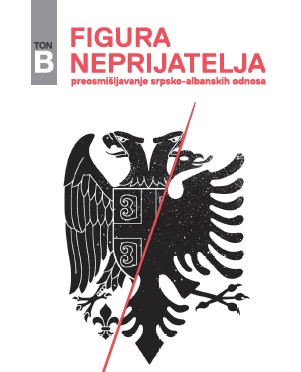
In this paper I analyse the travelogues from Old Serbia, which were a developed literary genre in Serbia at the end of the long nineteenth century, as a mechanism of vindicating the territorial claims of the discourse of Serbian nationalism. In the period when the portrayed lands were under Ottoman rule and deemed inaccessible to most of the Serbian population, which regarded them as the core of their national territory, these travelogues were unique way for the public to gain first-hand information about these lands. After a brief historical overview of the development of the genre, I analyse the literary mechanism through which these lands were efficiently labeled as Serbian. I particularly discuss the importance of scientific data copiously provided in the travelogues, on the issues of languages, customs, etc.
More...
In the time of the First Balkan War 1912–1913, there was a significant number of articles published in Serbian general and literary periodicals, which presented various images of the Albanian population, its cultural, social and political irrelevance in the context of new territorial division after the end of the First Balkan War. The aim of this paper is to describe and analyze these media representations in order to determine the level of ideological and thematic coherence among the images, and to evaluate the extent to which these images corresponded to the official rhetoric of the Serbian government regarding the national aspirations of the Albanians. I will attempt to map the most dominant tendencies and narratives in the production of stereotypes about the Albanian ethnic, cultural and political identity; also, the paper will raise certain questions related to the issue of fictional and documentary aspects of articles in Serbian periodicals, and the way these aspects shaped the public opinion. The analysis of the articles focuses on a chosen representative sample, taken from the most important periodicals of the time in Serbia: Politika, Radničke novine, Srpski književni glasnik, Delo, Ilustrovana ratna kronika (Beograd), Ilustrovana ratna kronika (Novi Sad).
More...
This paper presents the historical and present situation of the Serbian and Montenegrin minority in the district of Shkodra in Albania. The paper focuses on components that form the collective identity: (1) language that is a strong reference to ethnic identity; (2) religion and self-stereotypes that play an important role in defining the boundaries of the group and also create the categories (sub-groups) inside the Slav speaking community in Shkodra. The second part of the paper focuses on the chaotic transition from communism in Albania, which influenced migratory movements of Serbians-Montenegrins towards the origin country, Yugoslavia. Ultimately, I discuss the 2011 Albanian Census, praised as the first Albanian census after 80 years to include the questions on religion and ethnicity, and argue that it was not fully representative when it comes to Serbs or Montenegrins and other minorities due to some discriminatory elements towards them which it involved.
More...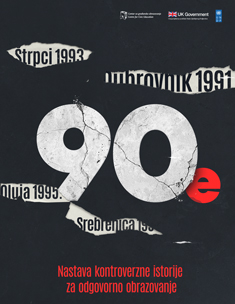
Formativno praćenje: razumije uputstva, umije pronaći podatke i činjenice, organizuje, pravi koncept i analogiju, upoređuje i analizira činjenice na osnovu kojih donosi zaključke o ratnim nacionalističkim ideologijama i ,,stradanjima“ običnih ali i svjetski poznatih ličnosti u ratnim uslovima; Sumativno ocjenjivanje: u skladu sa jasno gradiranim ishodima ocjenjuje učenike.
More...